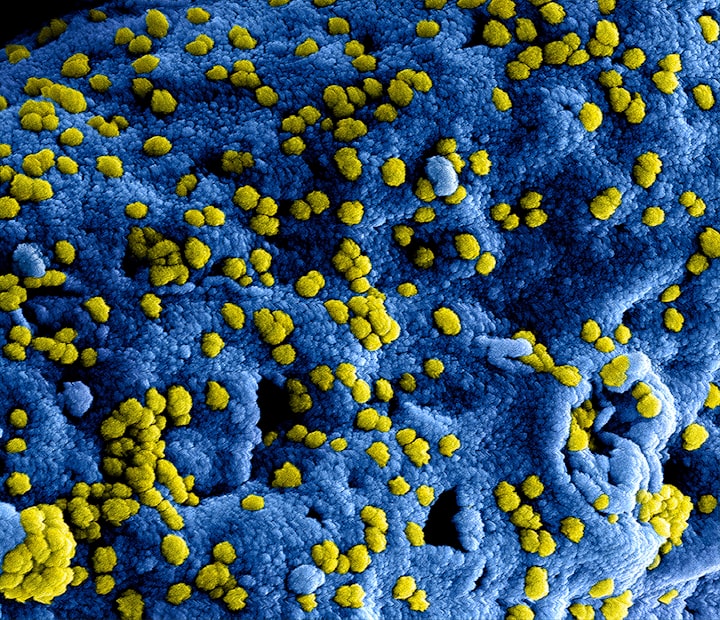Soil Bacteria Unveiled as Powerful Allies in Combating Persistent "Forever Chemicals"
Soil Bacteria
Introduction
In a groundbreaking study, scientists have made a significant breakthrough in the fight against "forever chemicals." Researchers have identified two strains of soil bacteria capable of degrading certain per- and polyfluoroalkyl substances (PFAS), notoriously known as "forever chemicals" due to their resistance to natural degradation processes. PFAS compounds are commonly found in nonstick cookware, stain-resistant fabrics, and firefighting foams. These chemicals have been associated with various health concerns, including elevated cholesterol levels, decreased fertility, developmental delays in children, and an increased risk of kidney, prostate, and testicular cancers. The findings, published in the esteemed journal Nature Water, shed light on the potential for using these bacteria to break down PFAS contaminants, offering a glimmer of hope for remediation efforts.
Unraveling the Persistent Challenge
The study's researchers discovered two types of bacteria, namely Desulfovibrio aminophilus and Sporomusa sphaeroides, that possess the remarkable ability to break down chlorinated PFAS compounds. These particular PFAS variants are commonly used to repel water in packaging and electronics. The bacteria achieve this feat by severing a crucial chemical bond within the PFAS compounds, effectively unraveling their structure and rendering them harmless. This finding marks a crucial step forward in combating the persistent nature of PFAS contaminants that can linger in the environment for decades, posing long-term risks to ecosystems and human health.
Harnessing Nature's Potential
The groundbreaking aspect of this discovery lies in the fact that these bacteria naturally occur in soil environments. Armed with this knowledge, scientists have proposed a novel approach to combating PFAS contamination by introducing nutrients into groundwater. This process aims to stimulate the multiplication of the identified bacteria, leveraging their natural ability to degrade PFAS compounds. By nourishing the existing microbial population, researchers envision a promising avenue for expediting the breakdown of PFAS contaminants and ultimately reducing their presence in affected areas.
Wider Implications for Remediation
Beyond injecting nutrients into contaminated groundwater, scientists believe that these bacteria can be safely introduced into other PFAS-contaminated environments where they are currently absent. This method holds significant promise for accelerating the remediation of PFAS-contaminated sites, such as manufacturing facilities, military bases, and areas near airports, where firefighting foams have been extensively used. By strategically introducing the identified bacteria, scientists hope to initiate a cascade effect, where the bacteria proliferate and establish sustainable populations that effectively degrade PFAS compounds. This approach could prove vital in curbing the long-lasting effects of PFAS contamination and protecting both human health and the environment.
The Road Ahead
While the discovery of these bacteria and their ability to break down chlorinated PFAS compounds is undeniably significant, further research and testing are required to assess their effectiveness under different environmental conditions. Scientists aim to refine and optimize the process of introducing the bacteria into contaminated sites, ensuring that they flourish and effectively combat PFAS pollutants. Additionally, researchers are keen on expanding their investigations to target other classes of PFAS compounds, broadening the scope of potential applications for these bacteria.
Collaborative Efforts and Regulatory Considerations
Given the widespread use and persistence of PFAS compounds, addressing the challenge of PFAS contamination demands a multifaceted approach involving collaboration between scientists, regulatory bodies, and industries. The discovery of these bacteria provides a glimmer of hope for the development of environmentally friendly and sustainable solutions to mitigate the harmful effects of PFAS contamination. Simultaneously, it underscores the importance of establishing robust regulations to limit the production, use, and disposal of PFAS compounds, while promoting the adoption of safer alternatives.
Conclusion
The identification of Desulfovibrioaminophilus and Sporomusa sphaeroides as potent bacteria capable of breaking down chlorinated PFAS compounds represents a major breakthrough in the ongoing battle against "forever chemicals." These bacteria, naturally occurring in soil, have demonstrated the ability to sever crucial chemical bonds within PFAS compounds, effectively dismantling their structure and neutralizing their harmful properties. With further research and optimization, these findings hold immense potential for remediating PFAS-contaminated sites and mitigating the long-lasting impacts of these persistent pollutants on human health and the environment.
To harness the potential of these bacteria, scientists are exploring various strategies. One approach involves injecting specific nutrients into groundwater contaminated with PFAS. By doing so, researchers aim to create favorable conditions that encourage the proliferation of Desulfovibrio aminophilus and Sporomusa sphaeroides, stimulating their activity and accelerating the breakdown of PFAS compounds. This method holds particular promise for sites where PFAS contamination is a pressing concern, such as areas near industrial facilities or military installations.
Furthermore, the introduction of these bacteria into PFAS-contaminated environments where they are not naturally found offers an innovative avenue for remediation. By strategically introducing the bacteria, scientists hope to establish self-sustaining populations that can efficiently degrade PFAS compounds over time. This approach has the potential to transform contaminated sites into safer and healthier environments, protecting both local ecosystems and human populations.
The implications of this research extend beyond the scientific community. Collaborative efforts between researchers, regulatory bodies, and industries are essential to tackle the pervasive issue of PFAS contamination comprehensively. Alongside the development of biological solutions, it is imperative to establish stringent regulations that govern the production, use, and disposal of PFAS compounds. By restricting the use of these chemicals and promoting the adoption of safer alternatives, the risk of PFAS contamination can be significantly reduced, preventing further damage to the environment and safeguarding public health.
While the discovery of bacteria capable of breaking down chlorinated PFAS compounds is undoubtedly a remarkable achievement, further research is necessary to fully understand their potential and limitations. Scientists are actively investigating the effectiveness of these bacteria under various environmental conditions and exploring their ability to target other classes of PFAS compounds. This ongoing research will contribute to the refinement of strategies and the development of innovative approaches to combat PFAS contamination.
The identification of Desulfovibrio aminophilus and Sporomusa sphaeroides as bacteria capable of breaking down chlorinated PFAS compounds represents a significant leap forward in addressing the challenges posed by "forever chemicals." With their natural ability to degrade PFAS pollutants, these bacteria offer a promising solution for remediating contaminated sites and protecting human health. The integration of these biological agents, coupled with robust regulations and concerted efforts from all stakeholders, provides hope for a future free from the harmful effects of PFAS contamination. By harnessing the power of nature, we can pave the way towards a cleaner and safer world for generations to come.
About the Creator
Devendra Singh
I am a professional writer and I have good concept and work experience in writing work.







Comments
There are no comments for this story
Be the first to respond and start the conversation.